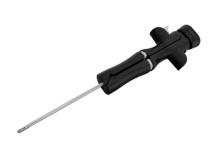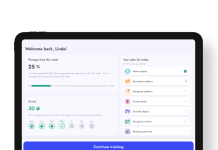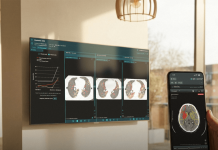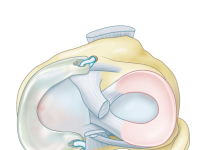inTRAvent’s SOLOPASS® system brings simple, portable, bedside neuro-navigation into the intensive care unit
inTRAvent Medical Partners LP, a medical device company dedicated to bringing intra-operative imaging and navigation to the bedside to improve neurosurgical procedures, announced FDA 510(k) clearance of its SOLOPASS® system for aiding in the frontal placement of intra-ventricular catheters.

“I’m confident that, by bringing neuro-navigation into these settings, we will expand the scope and breadth of neuro-critical care and provide our patients with better and earlier life-saving interventions.”
SOLOPASS is designed to provide imaging and guidance to improve the placement of external ventricular drains (EVDs), one of the most common and lifesaving procedures occurring in neurointensive care.
Although intra-operative neuro-navigation is commonplace in the operating room, the standard of care practiced in the intensive care unit and emergency room has changed very little in more than a century, and is entirely reliant on physicians’ experience and knowledge of the brain’s intricate anatomy. In many cases, the intracranial anatomy is distorted, (a phenomenon known as “brain shift”), due to excess cerebrospinal fluid, traumatic brain injury, cerebral edema, and other conditions in which the pressure within the skull can reach dangerous levels. Without the aid of contemporary guidance technologies, these conditions make bedside EVD placement challenging – even for highly skilled practitioners.
SOLOPASS allows caregivers to visualize the ventricular system, deep within the brain, to enable precision planning and guidance. The system uses 2D and 3D ultrasound imaging, artificial intelligence, and trajectory guidance for intra-procedural localization and navigation. Imaging occurs at the point of procedure, eliminating the potential for brain shift that may affect the accuracy of conventional neuro-navigation systems.
“Early on in my career, I lost a patient I was caring for as a result of EVD complications,” said inTRAvent co-founder and Chief Medical Officer Dr. Will Hazard, who first conceptualized the technology. “Our aim has always been to advance the standard of care for this all-too-common, unsolved problem.”
“The technique for external ventricular drainage has not changed in 100 years. SOLOPASS is the first major advance in how we perform these invasive brain procedures. I believe it is potentially a game changer, particularly for patients with distorted anatomy,” said Dr. Aaron Cohen-Gadol, Professor of Neurological surgery and Director of Neuro-oncology at the Indiana University School of Medicine and founder and CEO of The Neurosurgical Atlas.
“Throughout my career, I have watched neuro-navigation become the standard of care in neurosurgical operating rooms, while growing increasingly frustrated that in the ICU and at bedside, we are still performing brain procedures ‘free-hand,’ using only surface landmarks,” added Dr. Michael Oh, Professor & Vice Chair of Education at the University of California, Irvine. “I’m confident that, by bringing neuro-navigation into these settings, we will expand the scope and breadth of neuro-critical care and provide our patients with better and earlier life-saving interventions.”
“There’s been an increasing focus on bettering patient outcomes while improving healthcare economics. SOLOPASS represents a significant advancement in the treatment of these critically ill patients, and we believe it can potentially reduce downstream healthcare costs associated with lengthy stays in the ICU,” said inTRAvent co-founder and CEO Adam Barner.
About inTRAvent Medical Partners
inTRAvent Medical Partners is a medical device company dedicated to bringing intra-operative imaging and navigation to the bedside to improve the safety and efficacy of neurosurgical procedures. Its first product, SOLOPASS®, is designed for simple, portable neuro-navigation using 2D and 3D ultrasound imaging, artificial intelligence, and trajectory guidance for intra-procedural localization and navigation. For more information, please visit www.inTRAventMedical.com, or find us on LinkedIn.




